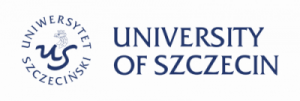This research centre consists of four well-equipped scientific laboratories focused on studying human motion, in all its aspects, from research at the molecular level (genetic, biochemical research) to systemic physiological and kinesiological research.
The research is focused mainly on athletes, both professionals and amateurs, at every stage of their sports career. The potential of the Center is also used by entrepreneurs whose products and services are related to human motion and well-being (dietary, pharmaceutical, footwear or chemical business) as well as healthcare companies.
Biochemistry Laboratory carries out research on:
- selected issues of athletes’ energy metabolism,
- analysis of selected parameters of the players’ white blood cell system,
- basic morphological and biochemical tests of athletes’ blood,
- post-workout changes to the athletes’ endocrine system,
- research on the influence of different types of training on changes at the molecular level, (cell signaling, oxidative stress, DNA damage and repair, cell death).
Physiology Laboratory carries out research on:
- Performance of athlets at different stages of the training process,
- Isokinetic strength assessment as a preventive factor in sport,
- Speed and reaction time of athlets of different disciplines,
- Analysis of muscle condition and neuromuscular coordination,
- Motion analysis with 1000 fps cameras,
- Analysis of muscle activity by means of EMG,
- Exercise ECG stress test.
Genetics Laboratory carries out research on:
- search for and identification of genetic determinants of sporting talents, giving the possibility to direct people with predispositions to develop their natural physical abilities (motor, physiological and other),
- examination of the genetic background of the athlete’s range of post-workout response and the rate of post-workout regeneration, which enables the individualisation of the training process,
- estimating the likelihood of an injury based on the presence of specific genetic risk factors, which allows for appropriate prevention,
Kinesiology Laboratory
shall carry out research work relating in particular to the knowledge of the conditions of the course of sensorimotor processes in athletes in rest and exercise conditions and the assessment and development of the motor skills of persons of different age and health.
The research concerns the analysis of the efficiency of both perceptual mechanisms, as well as decision-making and effector mechanisms, directly determining the efficiency of motor behavior. Current research projects are aimed at (1) assessing and improving the efficiency of visual perception and motor control functions in the context of sports achievements, and (2) developing the functional efficiency of people with motor coordination disorders and visual impairment.
Research projects shall be based on an interdisciplinary approach which takes into account clinical ophthalmology research procedures.
- Analysis of sensorimotor processes at different stages of information processing;
- Analysis of the posture stability control in healthy people and people with musculoskeletal disorders;
- Sports diagnosis – analysis of the conditions of achievements in various motor activities.





